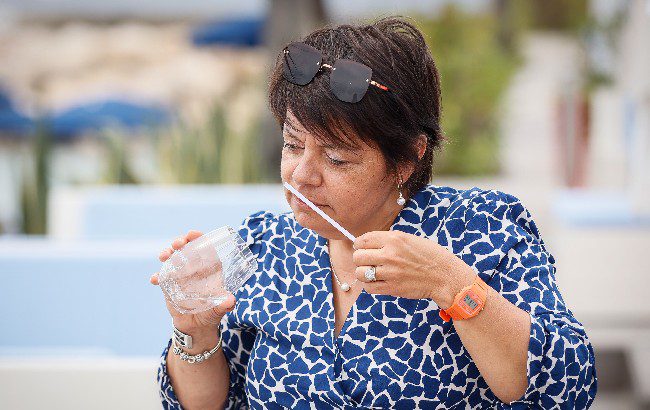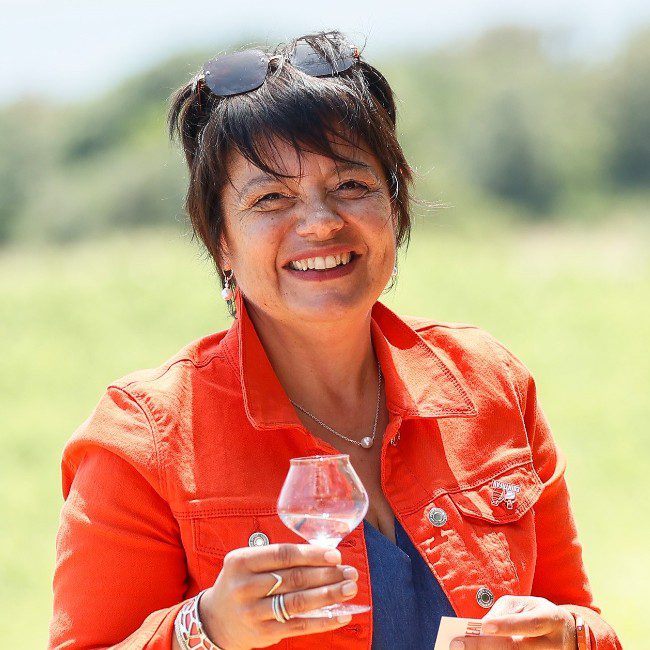This website uses cookies so that we can provide you with the best user experience possible. Cookie information is stored in your browser and performs functions such as recognising you when you return to our website and helping our team to understand which sections of the website you find most interesting and useful.
SB meets… Carole Quinton, Cointreau
The Cointreau brand has 170 years of history under its belt, and its signature orange liqueur has become a staple of any backbar. The Spirits Business met with the brand’s master distiller, Carole Quinton, to learn more about the processes behind making the historic liqueur, and to find out what it takes to become the ‘guardian angel’ of such an iconic spirit.

What is your role at Cointreau?
I have been part of the team for six years now, after arriving in 2016 as the master distiller. That was the name given to this position at Cointreau, and with it I have two main roles; I like to call the first role the ‘guardian angel’, because I am here to preserve the heritage of Alfred Cointreau by preserving all the savoir faire and ensuring the transmission along the generations. I am here to protect and keep the spirit of the liqueur as it is.
My second role is a bit like a perfumer. I test the liqueur at every stage of the production – the peels, the distillates, the final product – this I do with my colleagues at the quality control lab. With that, I have the role to have a vision for Cointreau, to see what could be the next product.
Where did your career start?
I always knew I wanted work with plants. When I was a kid with my grandfather, he and I would garden together. I loved the food, the aromas, the medicinal flowers – so naturally I went on to do agricultural studies; I wanted to be a farmer.
When I finished school I went to Pernod Ricard to work as an agricultural breeder, and they employed me for three years in Scotland where I studied with strawberry production. Pernod Ricard then gave me the opportunity to work with different raw materials – grapes, barley, fennel – all for the spirits industry. I had a lucky dip of products to work with and study. After three or four years I decided I needed to move onto the process of those raw materials, and onto new product development – and then I arrived at Cointreau.
What was involved in the process of training yourself into the role, and what would be the steps you’d need to take to prepare your successor in the event you decide to move on from the role?

When I arrived, I spent several months with Bernadette Langlais, the previous master distiller, who had been with the company for 32 years. We had a short time together, so I wrote a book that is only for me, of all the processes, each step for Cointreau. It included all the information of the peels – where they are coming from, what kind of producer, all the distillation processes – everything you need to know to arrive to the bottle. I renew this book every year when I learn new things, when we have new things coming in.
I have a colleague in my team who is my back-up – she is in the lab, the one keeping things going when I am not there. We are working together on all the subjects we have. She keeps the ship going.
How did you feel about taking on the responsibility of a brand and product that is six generations old?
When I had my first interviews with the team and with the Cointreau family, I felt like I had this responsibility, but it didn’t scare me – it was more like a challenge.
I really saw in this position that I had all the expertise from many years experience. From this role, I would have every involvement from bottling to the final product. In fact, it was all the palate of what I had done before. The only thing I had not done before was the communication aspects of the role. I like it very much. To be able to share the information and history of Cointreau – when people are listening, its amazing – people ask lots of questions and I find it very rewarding.
Due to changes in product availability and the seasons, the recipe does sometimes change but the product always remains the same – how long would it usually take you adapt a recipe in order to keep consistency?
For Cointreau L’Unique it is quite difficult. Because it has a long history, you can’t change everything or modify too much.
When I want to modify things like sugar levels, for example, I will test it and put it to an expert panel to see if the client will be able to detect the changes.
Cointreau L’Unique is the stalwart of the brand. Do you ever get the chance to do crazy experiments and off-the-wall product development away from the signature spirit?

Yes – one of my roles is to have a vision for the future. When we are looking at new products we need to gain knowledge by testing. This takes time. With Naomi who is working with me, we have plenty of projects with areas we can test. They are confidential at the moment, but if we see there is an opportunity, we can propose it to the team and do the tests with the clients easily.
We have to be able to anticipate what could be the innovation of tomorrow – so we are exploring those possibilities to be ready to propose prototypes when the opportunity arises.
We previously released Cointreau Blood Orange, but we stopped it. The blood oranges were coming from Corsica, but the product didn’t offer a good shelf life.
Cointreau L’Unique is made with a distillate of peels, alcohol and water; Cointreau Blood Orange was a different kind of recipe and it didn’t work as well. If I were to do it again I would do it right with peels.
What does it take to become a master distiller?
The background is science – you have to have expertise in the subject. It is a challenge, it has complexity and versatility – from being with clients, working in the lab, being in the field, speaking about genetics with the researchers, distillation with scientists. It’s really a palate of expertise, and this you can’t learn at school. It’s a full process.
I have one girl who was training with me – I don’t know if she will become a master distiller, but she is taking this path. She has worked with us on the distillation process, to have the vision, as well as an understanding of the operation. She is now doing a brewing and distilling diploma at Heriot-Watt University and the next step for her will be to go to other companies to get lots of experience with other products – whisky, vodka, gin – you need to have an understanding of all spirits.
Carole was on the judging panel of the 2022 Cointreau Margarita Challenge.

